afterLoad (455.86KB) (5.88ms)
afterInitialise (1.28MB) (43.38ms)
afterRoute (856.09KB) (14.42ms)
beforeRenderComponent com_tags (20.38KB) (347μs)
afterRenderComponent com_tags (1.57MB) (127ms)
afterDispatch (27.06KB) (2.82ms)
beforeRenderRawModule mod_articles_category (READ MORE...) (388.12KB) (21.62ms)
Before Access::preloadComponents (all components) (56.7KB) (2.57ms)
After Access::preloadComponents (all components) (103.05KB) (2.96ms)
Before Access::getAssetRules (id:8 name:com_content) (840B) (28μs)
After Access::getAssetRules (id:8 name:com_content) (7.05KB) (60μs)
afterRenderRawModule mod_articles_category (READ MORE...) (6.33KB) (131ms)
beforeRenderRawModule mod_tags_popular (Search) (4.81KB) (42μs)
afterRenderRawModule mod_tags_popular (Search) (1.88KB) (73.67ms)
beforeRenderRawModule mod_custom (Remember to download Heart Healthy Seniors) (816B) (39μs)
afterRenderRawModule mod_custom (Remember to download Heart Healthy Seniors) (4.86KB) (321μs)
beforeRenderRawModule mod_custom (Get additionel and more detailed knowledge ) (752B) (14μs)
afterRenderRawModule mod_custom (Get additionel and more detailed knowledge ) (1.67KB) (28μs)
beforeRenderRawModule mod_custom (BOOST YOUR IMMUNE DEFENSE) (608B) (10μs)
afterRenderRawModule mod_custom (BOOST YOUR IMMUNE DEFENSE) (928B) (23μs)
beforeRenderRawModule mod_custom (Are you taking supplements) (736B) (10μs)
afterRenderRawModule mod_custom (Are you taking supplements) (1.03KB) (19μs)
beforeRenderRawModule mod_custom (Antiaging) (720B) (10μs)
afterRenderRawModule mod_custom (Antiaging) (1.02KB) (18μs)
beforeRenderRawModule mod_custom (Exercise) (720B) (9μs)
afterRenderRawModule mod_custom (Exercise) (1.02KB) (18μs)
beforeRenderRawModule mod_custom (Check this before you buy a Q10 product) (752B) (9μs)
afterRenderRawModule mod_custom (Check this before you buy a Q10 product) (944B) (19μs)
beforeRenderRawModule mod_custom (Chronic fatigue tied Alan to his bed but Q10 capsules saved him:) (245.53KB) (6.18ms)
afterRenderRawModule mod_custom (Chronic fatigue tied Alan to his bed but Q10 capsules saved him:) (960B) (72μs)
beforeRenderModule mod_custom (Chronic fatigue tied Alan to his bed but Q10 capsules saved him:) (768B) (6μs)
afterRenderModule mod_custom (Chronic fatigue tied Alan to his bed but Q10 capsules saved him:) (1.3KB) (75μs)
beforeRenderRawModule mod_custom (Cholesterol-lowering without side effects:) (368B) (13μs)
afterRenderRawModule mod_custom (Cholesterol-lowering without side effects:) (2.19KB) (26μs)
beforeRenderModule mod_custom (Cholesterol-lowering without side effects:) (752B) (2μs)
afterRenderModule mod_custom (Cholesterol-lowering without side effects:) (1.28KB) (30μs)
beforeRenderModule mod_articles_category (READ MORE...) (21.32KB) (2ms)
afterRenderModule mod_articles_category (READ MORE...) (1.25KB) (87μs)
beforeRenderModule mod_tags_popular (Search) (5.17KB) (22μs)
afterRenderModule mod_tags_popular (Search) (1.27KB) (27μs)
beforeRenderModule mod_custom (Remember to download Heart Healthy Seniors) (1.17KB) (13μs)
afterRenderModule mod_custom (Remember to download Heart Healthy Seniors) (1.3KB) (23μs)
beforeRenderModule mod_custom (Get additionel and more detailed knowledge ) (368B) (10μs)
afterRenderModule mod_custom (Get additionel and more detailed knowledge ) (1.3KB) (22μs)
beforeRenderModule mod_custom (BOOST YOUR IMMUNE DEFENSE) (224B) (9μs)
afterRenderModule mod_custom (BOOST YOUR IMMUNE DEFENSE) (1.28KB) (22μs)
beforeRenderModule mod_custom (Are you taking supplements) (352B) (9μs)
afterRenderModule mod_custom (Are you taking supplements) (1.28KB) (20μs)
beforeRenderModule mod_custom (Antiaging) (336B) (9μs)
afterRenderModule mod_custom (Antiaging) (1.27KB) (22μs)
beforeRenderModule mod_custom (Exercise) (336B) (8μs)
afterRenderModule mod_custom (Exercise) (1.25KB) (20μs)
beforeRenderModule mod_custom (Check this before you buy a Q10 product) (352B) (10μs)
afterRenderModule mod_custom (Check this before you buy a Q10 product) (1.28KB) (19μs)
beforeRenderRawModule mod_menu (Main menu-US) (20.94KB) (1.66ms)
afterRenderRawModule mod_menu (Main menu-US) (152.66KB) (3.92ms)
beforeRenderModule mod_menu (Main menu-US) (720B) (7μs)
afterRenderModule mod_menu (Main menu-US) (4.36KB) (80μs)
beforeRenderRawModule mod_languages (Sprogskift) (3.44KB) (24μs)
afterRenderRawModule mod_languages (Sprogskift) (26.91KB) (4.64ms)
beforeRenderModule mod_languages (Sprogskift) (720B) (8μs)
afterRenderModule mod_languages (Sprogskift) (5.31KB) (27μs)
beforeRenderRawModule mod_finder () (6.34KB) (15μs)
afterRenderRawModule mod_finder () (219.66KB) (4.9ms)
beforeRenderModule mod_finder () (704B) (7μs)
afterRenderModule mod_finder () (5.79KB) (43μs)
beforeRenderRawModule mod_custom () (6.62KB) (1.18ms)
afterRenderRawModule mod_custom () (22.61KB) (2.7ms)
beforeRenderModule mod_custom () (704B) (9μs)
afterRenderModule mod_custom () (1.23KB) (61μs)
beforeRenderRawModule mod_menu (Main menu-US) (5.07KB) (136μs)
afterRenderRawModule mod_menu (Main menu-US) (5.8KB) (727μs)
beforeRenderModule mod_menu (Main menu-US) (720B) (3μs)
afterRenderModule mod_menu (Main menu-US) (1.25KB) (48μs)
beforeRenderRawModule mod_languages (Sprogskift Mobil) (912B) (17μs)
afterRenderRawModule mod_languages (Sprogskift Mobil) (3.89KB) (2.89ms)
beforeRenderModule mod_languages (Sprogskift Mobil) (720B) (9μs)
afterRenderModule mod_languages (Sprogskift Mobil) (1.27KB) (42μs)
beforeRenderRawModule mod_finder () (2.3KB) (15μs)
afterRenderRawModule mod_finder () (6.29KB) (1.81ms)
beforeRenderModule mod_finder () (704B) (8μs)
afterRenderModule mod_finder () (1.23KB) (63μs)
beforeRenderRawModule mod_custom () (8.66KB) (1.53ms)
afterRenderRawModule mod_custom () (904B) (247μs)
beforeRenderModule mod_custom () (704B) (4μs)
afterRenderModule mod_custom () (2.43KB) (38μs)
beforeRenderRawModule mod_custom () (688B) (128μs)
afterRenderRawModule mod_custom () (896B) (111μs)
beforeRenderModule mod_custom () (704B) (3μs)
afterRenderModule mod_custom () (2.71KB) (23μs)
afterRender (268.12KB) (12.44ms)
| 1 x afterRenderRawModule mod_articles_category (READ MORE...) (6.33KB) (27.59%) | 131.38ms |
| 1 x afterRenderComponent com_tags (1.57MB) (26.61%) | 126.69ms |
| 1 x afterRenderRawModule mod_tags_popular (Search) (1.88KB) (15.47%) | 73.67ms |
| 1 x afterInitialise (1.28MB) (9.11%) | 43.38ms |
| 1 x beforeRenderRawModule mod_articles_category (READ MORE...) (388.12KB) (4.54%) | 21.62ms |
| 1 x afterRoute (856.09KB) (3.03%) | 14.42ms |
| 1 x afterRender (268.12KB) (2.61%) | 12.44ms |
| 1 x beforeRenderRawModule mod_custom (Chronic fatigue tied Alan to his bed but Q10 capsules saved him:) (245.53KB) (1.3%) | 6.18ms |
| 1 x afterLoad (455.86KB) (1.23%) | 5.88ms |
| 1 x afterRenderRawModule mod_finder () (219.66KB) (1.03%) | 4.90ms |
| 1 x afterRenderRawModule mod_languages (Sprogskift) (26.91KB) (0.98%) | 4.64ms |
| 1 x afterRenderRawModule mod_menu (Main menu-US) (152.66KB) (0.82%) | 3.92ms |
| 1 x After Access::preloadComponents (all components) (103.05KB) (0.62%) | 2.96ms |
| 1 x afterRenderRawModule mod_languages (Sprogskift Mobil) (3.89KB) (0.61%) | 2.89ms |
| 1 x afterDispatch (27.06KB) (0.59%) | 2.82ms |
| 1 x afterRenderRawModule mod_custom () (22.61KB) (0.57%) | 2.70ms |
| 1 x Before Access::preloadComponents (all components) (56.7KB) (0.54%) | 2.57ms |
| 1 x beforeRenderModule mod_articles_category (READ MORE...) (21.32KB) (0.42%) | 2.00ms |
| 1 x afterRenderRawModule mod_finder () (6.29KB) (0.38%) | 1.81ms |
| 1 x beforeRenderRawModule mod_menu (Main menu-US) (20.94KB) (0.35%) | 1.66ms |
| 1 x beforeRenderRawModule mod_custom () (8.66KB) (0.32%) | 1.53ms |
| 1 x beforeRenderRawModule mod_custom () (6.62KB) (0.25%) | 1.18ms |
| 1 x afterRenderRawModule mod_menu (Main menu-US) (5.8KB) (0.15%) | 727μs |
| 1 x beforeRenderComponent com_tags (20.38KB) (0.07%) | 347μs |
| 1 x afterRenderRawModule mod_custom (Remember to download Heart Healthy Seniors) (4.86KB) (0.07%) | 321μs |
| 1 x afterRenderRawModule mod_custom () (904B) (0.05%) | 247μs |
| 1 x beforeRenderRawModule mod_menu (Main menu-US) (5.07KB) (0.03%) | 136μs |
| 1 x beforeRenderRawModule mod_custom () (688B) (0.03%) | 128μs |
| 1 x afterRenderRawModule mod_custom () (896B) (0.02%) | 111μs |
| 1 x afterRenderModule mod_articles_category (READ MORE...) (1.25KB) (0.02%) | 87μs |
| 1 x afterRenderModule mod_menu (Main menu-US) (4.36KB) (0.02%) | 80μs |
| 1 x afterRenderModule mod_custom (Chronic fatigue tied Alan to his bed but Q10 capsules saved him:) (1.3KB) (0.02%) | 75μs |
| 1 x afterRenderRawModule mod_custom (Chronic fatigue tied Alan to his bed but Q10 capsules saved him:) (960B) (0.02%) | 72μs |
| 1 x afterRenderModule mod_finder () (1.23KB) (0.01%) | 63μs |
| 1 x afterRenderModule mod_custom () (1.23KB) (0.01%) | 61μs |
| 1 x After Access::getAssetRules (id:8 name:com_content) (7.05KB) (0.01%) | 60μs |
| 1 x afterRenderModule mod_menu (Main menu-US) (1.25KB) (0.01%) | 48μs |
| 1 x afterRenderModule mod_finder () (5.79KB) (0.01%) | 43μs |
| 1 x afterRenderModule mod_languages (Sprogskift Mobil) (1.27KB) (0.01%) | 42μs |
| 1 x beforeRenderRawModule mod_tags_popular (Search) (4.81KB) (0.01%) | 42μs |
| 1 x beforeRenderRawModule mod_custom (Remember to download Heart Healthy Seniors) (816B) (0.01%) | 39μs |
| 1 x afterRenderModule mod_custom () (2.43KB) (0.01%) | 38μs |
| 1 x afterRenderModule mod_custom (Cholesterol-lowering without side effects:) (1.28KB) (0.01%) | 30μs |
| 1 x afterRenderRawModule mod_custom (Get additionel and more detailed knowledge ) (1.67KB) (0.01%) | 28μs |
| 1 x Before Access::getAssetRules (id:8 name:com_content) (840B) (0.01%) | 28μs |
| 1 x afterRenderModule mod_languages (Sprogskift) (5.31KB) (0.01%) | 27μs |
| 1 x afterRenderModule mod_tags_popular (Search) (1.27KB) (0.01%) | 27μs |
| 1 x afterRenderRawModule mod_custom (Cholesterol-lowering without side effects:) (2.19KB) (0.01%) | 26μs |
| 1 x beforeRenderRawModule mod_languages (Sprogskift) (3.44KB) (0.01%) | 24μs |
| 1 x afterRenderRawModule mod_custom (BOOST YOUR IMMUNE DEFENSE) (928B) (0%) | 23μs |
| 1 x afterRenderModule mod_custom (Remember to download Heart Healthy Seniors) (1.3KB) (0%) | 23μs |
| 1 x afterRenderModule mod_custom () (2.71KB) (0%) | 23μs |
| 1 x beforeRenderModule mod_tags_popular (Search) (5.17KB) (0%) | 22μs |
| 1 x afterRenderModule mod_custom (Get additionel and more detailed knowledge ) (1.3KB) (0%) | 22μs |
| 1 x afterRenderModule mod_custom (BOOST YOUR IMMUNE DEFENSE) (1.28KB) (0%) | 22μs |
| 1 x afterRenderModule mod_custom (Antiaging) (1.27KB) (0%) | 22μs |
| 1 x afterRenderModule mod_custom (Are you taking supplements) (1.28KB) (0%) | 20μs |
| 1 x afterRenderModule mod_custom (Exercise) (1.25KB) (0%) | 20μs |
| 1 x afterRenderRawModule mod_custom (Are you taking supplements) (1.03KB) (0%) | 19μs |
| 1 x afterRenderRawModule mod_custom (Check this before you buy a Q10 product) (944B) (0%) | 19μs |
| 1 x afterRenderModule mod_custom (Check this before you buy a Q10 product) (1.28KB) (0%) | 19μs |
| 1 x afterRenderRawModule mod_custom (Antiaging) (1.02KB) (0%) | 18μs |
| 1 x afterRenderRawModule mod_custom (Exercise) (1.02KB) (0%) | 18μs |
| 1 x beforeRenderRawModule mod_languages (Sprogskift Mobil) (912B) (0%) | 17μs |
| 3 x beforeRenderModule mod_custom () (704B) (0%) | 16μs |
| 1 x beforeRenderRawModule mod_finder () (6.34KB) (0%) | 15μs |
| 2 x beforeRenderModule mod_finder () (704B) (0%) | 15μs |
| 1 x beforeRenderRawModule mod_finder () (2.3KB) (0%) | 15μs |
| 1 x beforeRenderRawModule mod_custom (Get additionel and more detailed knowledge ) (752B) (0%) | 14μs |
| 1 x beforeRenderRawModule mod_custom (Cholesterol-lowering without side effects:) (368B) (0%) | 13μs |
| 1 x beforeRenderModule mod_custom (Remember to download Heart Healthy Seniors) (1.17KB) (0%) | 13μs |
| 1 x beforeRenderRawModule mod_custom (BOOST YOUR IMMUNE DEFENSE) (608B) (0%) | 10μs |
| 1 x beforeRenderRawModule mod_custom (Are you taking supplements) (736B) (0%) | 10μs |
| 1 x beforeRenderRawModule mod_custom (Antiaging) (720B) (0%) | 10μs |
| 1 x beforeRenderModule mod_custom (Get additionel and more detailed knowledge ) (368B) (0%) | 10μs |
| 1 x beforeRenderModule mod_custom (Check this before you buy a Q10 product) (352B) (0%) | 10μs |
| 2 x beforeRenderModule mod_menu (Main menu-US) (720B) (0%) | 10μs |
| 1 x beforeRenderRawModule mod_custom (Exercise) (720B) (0%) | 9μs |
| 1 x beforeRenderRawModule mod_custom (Check this before you buy a Q10 product) (752B) (0%) | 9μs |
| 1 x beforeRenderModule mod_custom (BOOST YOUR IMMUNE DEFENSE) (224B) (0%) | 9μs |
| 1 x beforeRenderModule mod_custom (Are you taking supplements) (352B) (0%) | 9μs |
| 1 x beforeRenderModule mod_custom (Antiaging) (336B) (0%) | 9μs |
| 1 x beforeRenderModule mod_languages (Sprogskift Mobil) (720B) (0%) | 9μs |
| 1 x beforeRenderModule mod_custom (Exercise) (336B) (0%) | 8μs |
| 1 x beforeRenderModule mod_languages (Sprogskift) (720B) (0%) | 8μs |
| 1 x beforeRenderModule mod_custom (Chronic fatigue tied Alan to his bed but Q10 capsules saved him:) (768B) (0%) | 6μs |
| 1 x beforeRenderModule mod_custom (Cholesterol-lowering without side effects:) (752B) (0%) | 2μs |
 The number of older people is constantly increasing, and more and more people suffer from Alzheimer’s disease and other types of dementia. Apparently, seniors who take a daily multivitamin can improve their memory and slow down their cognitive decline, according to a meta-analysis that is published in Journal of Clinical Nutrition. Older people generally have increased need for certain vitamins and minerals because of poor nutrient absorption in the digestive system, impaired enzyme functions, oxidative stress, and regular use of medical drugs that can interact with the nutrients. But how do different vitamins and minerals affect brain health?
The number of older people is constantly increasing, and more and more people suffer from Alzheimer’s disease and other types of dementia. Apparently, seniors who take a daily multivitamin can improve their memory and slow down their cognitive decline, according to a meta-analysis that is published in Journal of Clinical Nutrition. Older people generally have increased need for certain vitamins and minerals because of poor nutrient absorption in the digestive system, impaired enzyme functions, oxidative stress, and regular use of medical drugs that can interact with the nutrients. But how do different vitamins and minerals affect brain health?







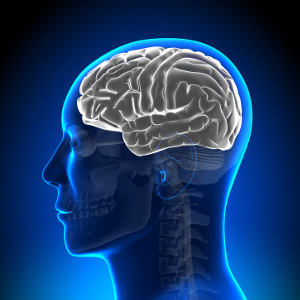 It is commonly known that oily fish and fish oil supplements contain the two omega-3 fatty acids EPA and DHA that are good for the brain. Now, scientists from Singapore have discovered a special omega-3 fatty acid that is of particular importance to brain cells that are surrounded by a protective myeline sheath. The scientists say that their discovery may help prevent brain ageing and lead to the development of new therapies aimed at treating neurological disorders like sclerosis that are associated with myelin damage. Their new study is published in Journal of Clinical Investigation and it appears that fish roe is the best source of these special omega-3 fatty acids that are needed to stimulate the myeline sheath.
It is commonly known that oily fish and fish oil supplements contain the two omega-3 fatty acids EPA and DHA that are good for the brain. Now, scientists from Singapore have discovered a special omega-3 fatty acid that is of particular importance to brain cells that are surrounded by a protective myeline sheath. The scientists say that their discovery may help prevent brain ageing and lead to the development of new therapies aimed at treating neurological disorders like sclerosis that are associated with myelin damage. Their new study is published in Journal of Clinical Investigation and it appears that fish roe is the best source of these special omega-3 fatty acids that are needed to stimulate the myeline sheath.
 The B vitamin biotin reduces neurological brain damage that is caused by manganese and resembles Parkinson’s disease. Although manganese is an essential mineral, excessive intake can act as a neurotoxin. However, according to a study published in Science Signaling, biotin appears to have a therapeutic effect on Parkinson-like symptoms by promoting the production of the neurotransmitter dopamine, which is important for the nervous system and mood.
The B vitamin biotin reduces neurological brain damage that is caused by manganese and resembles Parkinson’s disease. Although manganese is an essential mineral, excessive intake can act as a neurotoxin. However, according to a study published in Science Signaling, biotin appears to have a therapeutic effect on Parkinson-like symptoms by promoting the production of the neurotransmitter dopamine, which is important for the nervous system and mood.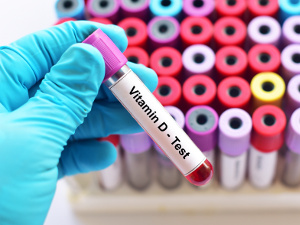
 Everyone is affected by electromagnetic radiation from cell phones, device screens, the electricity supply and other electric systems. The brain’s neurons are particularly vulnerable, especially because electromagnetic radiation can increase the neuronal uptake of calcium ions, which makes the neurons overactive and may even cause them to perish. A study published in News Medical Life Sciences shows that too much calcium in the brain increases the risk of Alzheimer’s disease and digital dementia in young individuals. The increased electromagnetic radiation also generates loads of free radicals in the body that can cause oxidative stress and cellular damage because it outperforms the body’s different antioxidants. This was described in an article published in The Journal of Microscopy & Ultrastructure that also mentions how electromagnetic radiation can cause stress, headaches, fatigue, anxiety, and other symptoms.
Everyone is affected by electromagnetic radiation from cell phones, device screens, the electricity supply and other electric systems. The brain’s neurons are particularly vulnerable, especially because electromagnetic radiation can increase the neuronal uptake of calcium ions, which makes the neurons overactive and may even cause them to perish. A study published in News Medical Life Sciences shows that too much calcium in the brain increases the risk of Alzheimer’s disease and digital dementia in young individuals. The increased electromagnetic radiation also generates loads of free radicals in the body that can cause oxidative stress and cellular damage because it outperforms the body’s different antioxidants. This was described in an article published in The Journal of Microscopy & Ultrastructure that also mentions how electromagnetic radiation can cause stress, headaches, fatigue, anxiety, and other symptoms. Fish oil contains EPA and DHA, two omega-3 fatty acids with a number of different functions in the brain and nervous system. It appears that middle-aged people who consume more oily fish or who take fish oil supplements have improvements in their brain structure and cognitive skills. This was shown in a study that is published in Neurology. The study results are quite interesting because cognitive decline and dementia are increasing problems that affect millions of people worldwide. The study supports previous research where it was seen that having higher concentrations of DHA in the red blood cell can reduce the risk of Alzheimer’s disease by 50 percent.
Fish oil contains EPA and DHA, two omega-3 fatty acids with a number of different functions in the brain and nervous system. It appears that middle-aged people who consume more oily fish or who take fish oil supplements have improvements in their brain structure and cognitive skills. This was shown in a study that is published in Neurology. The study results are quite interesting because cognitive decline and dementia are increasing problems that affect millions of people worldwide. The study supports previous research where it was seen that having higher concentrations of DHA in the red blood cell can reduce the risk of Alzheimer’s disease by 50 percent.
 The number of older people is on the rise, and so is the number of people who suffer from dementia and die as a result of this condition. If you increase your dietary intake of magnesium, however, and get more than what is officially recommended, it helps keep your brain sharp and prevents dementia, according to a large population study that is published in European Journal of Nutrition. Many older people don’t eat enough and even take different kinds of medicine that block the body’s uptake and utilization of magnesium. So, how does magnesium affect the brain and nervous system? And how much do we need to stay mentally alert throughout life? Those are the questions.
The number of older people is on the rise, and so is the number of people who suffer from dementia and die as a result of this condition. If you increase your dietary intake of magnesium, however, and get more than what is officially recommended, it helps keep your brain sharp and prevents dementia, according to a large population study that is published in European Journal of Nutrition. Many older people don’t eat enough and even take different kinds of medicine that block the body’s uptake and utilization of magnesium. So, how does magnesium affect the brain and nervous system? And how much do we need to stay mentally alert throughout life? Those are the questions. Ageing is characterized by increased physical and mental frailty that reduces one’s ability to deal with various external stress factors. Omega-3 fatty acids that are found in oily fish and fish oil supplements are believed to prevent frailty through their immune-regulating and anti-inflammatory properties, but studies have shown conflicting results. Nonetheless, daily intake of two grams of omega-3 appears to reduce frailty. According to a large population study that is published in Frontiers in Nutrition, it is also important to include moderate quantities of high-quality omega-6.
Ageing is characterized by increased physical and mental frailty that reduces one’s ability to deal with various external stress factors. Omega-3 fatty acids that are found in oily fish and fish oil supplements are believed to prevent frailty through their immune-regulating and anti-inflammatory properties, but studies have shown conflicting results. Nonetheless, daily intake of two grams of omega-3 appears to reduce frailty. According to a large population study that is published in Frontiers in Nutrition, it is also important to include moderate quantities of high-quality omega-6. The two omega-3 fatty acids, EPA and DHA, are of vital importance to the development of a baby’s brain and central nervous system during pregnancy and the first years of life. The best sources of these fatty acids are oily fish and fish oil supplements. There is widespread deficiency of these fatty acids, which increases the risk of a lower IQ, ADHD, depression, or other neurological disturbances in the baby, according to a review article published in Nutrients. It is also important for brain health to balance one’s intake of omega-3 and omega-6.
The two omega-3 fatty acids, EPA and DHA, are of vital importance to the development of a baby’s brain and central nervous system during pregnancy and the first years of life. The best sources of these fatty acids are oily fish and fish oil supplements. There is widespread deficiency of these fatty acids, which increases the risk of a lower IQ, ADHD, depression, or other neurological disturbances in the baby, according to a review article published in Nutrients. It is also important for brain health to balance one’s intake of omega-3 and omega-6.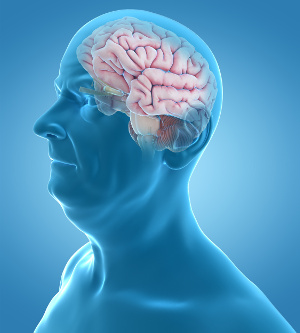 There seems to be a relation between ageing, Alzheimer’s disease, and the widespread problems with selenium deficiency. According to a new study that is published in Antioxidants, scientist have revealed how different selenium-containing proteins can affect pathological processes in the brain that are known to cause Alzheimer’s disease. They believe selenium may have therapeutical potential in the treatment of this disease, which is one of the greatest disease burdens and a leading cause of death among seniors. Selenium also helps in the prevention of the disease, which is extremely important because it is often difficult to diagnose Alzheimer’s disease in its early stages.
There seems to be a relation between ageing, Alzheimer’s disease, and the widespread problems with selenium deficiency. According to a new study that is published in Antioxidants, scientist have revealed how different selenium-containing proteins can affect pathological processes in the brain that are known to cause Alzheimer’s disease. They believe selenium may have therapeutical potential in the treatment of this disease, which is one of the greatest disease burdens and a leading cause of death among seniors. Selenium also helps in the prevention of the disease, which is extremely important because it is often difficult to diagnose Alzheimer’s disease in its early stages.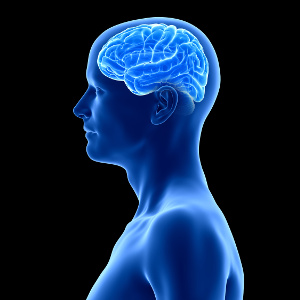 Glioblastoma is a the most common type of brain tumor and is very aggressive. Existing therapies are not all that effective and most people die within a few years after being diagnosed with the disease. It is essential to have more focus on prevention, and diet plays a major role. According to a Chinese population study, vitamins B1, B2, B2, and B9 (folic acid) are associated with a reduced risk of developing glioblastoma. The scientists mention the different B vitamins and their role in brain health and cancer prevention and stress the importance of knowing about the factors that inhibit the body’s uptake and utilization of these vitamins.
Glioblastoma is a the most common type of brain tumor and is very aggressive. Existing therapies are not all that effective and most people die within a few years after being diagnosed with the disease. It is essential to have more focus on prevention, and diet plays a major role. According to a Chinese population study, vitamins B1, B2, B2, and B9 (folic acid) are associated with a reduced risk of developing glioblastoma. The scientists mention the different B vitamins and their role in brain health and cancer prevention and stress the importance of knowing about the factors that inhibit the body’s uptake and utilization of these vitamins.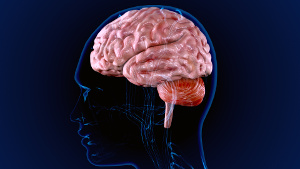 Brain cancer is associated with physical and cognitive disruptions, and many patients die within a few years. Compared with other cancers, the development of brain cancer is more complex and there has been focus on underlying causes such as head traumas, allergies, and electromagnetic radiation from cell phones, transmission towers, etc. Scientists have also looked at vitamins and brain health, whereas minerals have been ignored. Now, a team of Chinese scientists have conducted a large population study and found that higher intake of calcium, magnesium, iron, zinc, and copper is linked to a reduced risk of different types of brain cancer (gliomas). Apparently, selenium also has a protective effect.
Brain cancer is associated with physical and cognitive disruptions, and many patients die within a few years. Compared with other cancers, the development of brain cancer is more complex and there has been focus on underlying causes such as head traumas, allergies, and electromagnetic radiation from cell phones, transmission towers, etc. Scientists have also looked at vitamins and brain health, whereas minerals have been ignored. Now, a team of Chinese scientists have conducted a large population study and found that higher intake of calcium, magnesium, iron, zinc, and copper is linked to a reduced risk of different types of brain cancer (gliomas). Apparently, selenium also has a protective effect.
 During pregnancy, vitamin D plays an important role in the bone development of the unborn child, in the brain, and in other functions. Maternal lack of vitamin D during pregnancy may therefore have serious consequences for the fetus and its development. This also goes for the development of neurons in the dopamine-producing area of the brain, which can most likely result in dysfunctions of the dopamine balance, a problem that is seen in young individuals and adults with schizophrenia. This was demonstrated in a new study that is published in Journal of Neurochemistry. The study supports an earlier review article where it was seen that early stages of psychotic disorders like schizophrenia are linked to severe deficiencies of vitamin D and other nutrients with vital importance to brain health, especially during pregnancy.
During pregnancy, vitamin D plays an important role in the bone development of the unborn child, in the brain, and in other functions. Maternal lack of vitamin D during pregnancy may therefore have serious consequences for the fetus and its development. This also goes for the development of neurons in the dopamine-producing area of the brain, which can most likely result in dysfunctions of the dopamine balance, a problem that is seen in young individuals and adults with schizophrenia. This was demonstrated in a new study that is published in Journal of Neurochemistry. The study supports an earlier review article where it was seen that early stages of psychotic disorders like schizophrenia are linked to severe deficiencies of vitamin D and other nutrients with vital importance to brain health, especially during pregnancy. We have relatively large quantities of zinc in our central nervous system where it plays a vital role in various physiological and pathological processes. Zinc is also important for brain development, various gene activities, the formation of new neurons, and the immune defense. What is more, zinc is a vital antioxidant that protects the brain against calcification and cell damage caused by oxidative stress. Zinc deficiency is a global problem and may be involved in a number of different neurological diseases – including stroke, cognitive impairment, Alzheimer’s disease, and depression, according to a new review article that is published in Biomolecules.
We have relatively large quantities of zinc in our central nervous system where it plays a vital role in various physiological and pathological processes. Zinc is also important for brain development, various gene activities, the formation of new neurons, and the immune defense. What is more, zinc is a vital antioxidant that protects the brain against calcification and cell damage caused by oxidative stress. Zinc deficiency is a global problem and may be involved in a number of different neurological diseases – including stroke, cognitive impairment, Alzheimer’s disease, and depression, according to a new review article that is published in Biomolecules. "After about one week of taking the Q10 supplement I could feel a huge difference," says 23-year old Alan Piccini, who has been suffering from extreme fatigue and muscle aches ever since he was a child.
"After about one week of taking the Q10 supplement I could feel a huge difference," says 23-year old Alan Piccini, who has been suffering from extreme fatigue and muscle aches ever since he was a child. “Taking capsules with co-enzyme Q10 has freed me of the severe side effects of my cholesterol lowering medicine,” Mrs Franken explains.
“Taking capsules with co-enzyme Q10 has freed me of the severe side effects of my cholesterol lowering medicine,” Mrs Franken explains.